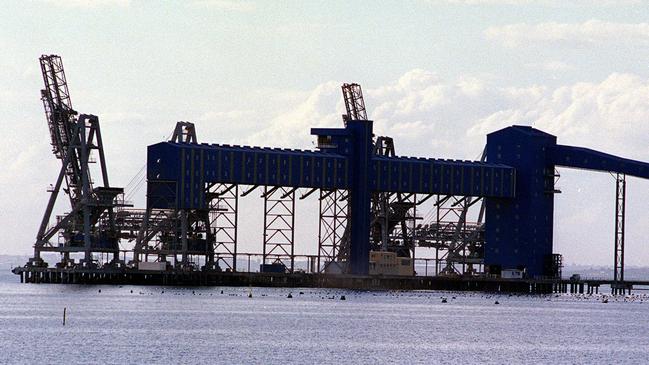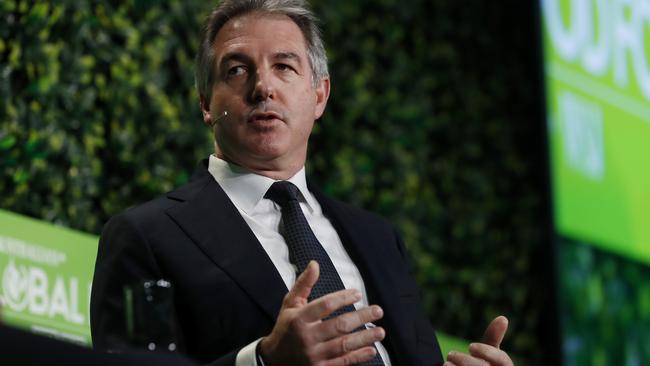Cloud over rival GrainCorp and Cargill plans for oilseed crushing plants
GrainCorp, which planned to build large-scale oilseed crushing plants in WA, has taken a swipe at the nation’s renewable fuels policy after BP put a $600m investment on hold indefinitely.

GrainCorp has taken a swipe at renewable fuels policy in Australia in the wake of BP’s decision to put an indefinite hold on a $600m investment at its former Perth oil refinery.
Rival plans by GrainCorp and Cargill to build large-scale oilseed crushing plants in Western Australia are in doubt in the fallout from BP getting cold feet on the project at Kwinana, south of Perth
It is understood Cargill had been in talks with BP about supplying feedstock to the renewable fuel hub.
GrainCorp said the BP retreat showed Australia was at risk of missing the opportunity to develop a homegrown renewable fuels sector.
“Seeing an international fuel major preference their oversees options underscores the critical need for clear and stable policy settings to enable investment,” a GrainCorp spokesman said.
“Without this support, Australia risks missing the opportunity to develop a homegrown renewable fuels sector, allowing capital to move offshore to regions with stronger policies in place.”
A spokesman for Cargill said the BP call underscored the need for greater clarity on biofuel policy in Australia and where it figured in decarbonisation priorities.

Cargill has a two-year lease on WA government land next door to the CBH Kwinana grain terminal that it has earmarked for a plant to crush canola from the state’s vast Wheatbelt.
GrainCorp has been weighing up spending more than $500m to build a similar oilseed crushing plant.
BP is unlikely to proceed with its Kwinana project in the absence of federal government mandates around the use of biofuels, in particular on the use of sustainable aviation fuel.
The British petroleum giant has lobbied the Albanese government to impose SAF mandates on Qantas and other domestic carriers to decarbonise air travel.
BP had been scheduled to make a final decision on the renewable fuel hub proceeding later this year with first production targeted for 2027. On Monday BP said it was putting the project on ice “with a focus on improving capital efficiency and better alignment with government policies”.
Cargill has worked on its oilseed crushing plant plans with the WA government and CBH, which is Australia’s biggest co-operative and controlled by thousands of farmers. The Minnesota-headquartered commodities trader has said its plans involve supplying the emerging biofuel market in Australia as well as the domestic and export oil and meal markets.
GrainCorp flagged building a crushing plant with capacity of 750,000 to one million tonnes a year, despite missing out on the prime Kwinana site snapped up by Cargill next to rail lines used to cart grain.
GrainCorp said on Tuesday that its focus has always been on building a strong domestic supply chain for renewable fuels in Australia. The giant east coast grain handler is working with Ampol and IFM Investors on a domestic supply chain.
“We are working to develop the industry from the ground up, ensuring Australian feedstocks are used to support the decarbonisation of the Australian transport sector, to facilitate and promote Australia’s fuel independence, create jobs and drive economic growth in regional communities,” GrainCorp said.
“We continue to work with IFM and Ampol to progress the feasibility assessment of a renewable fuels facility at Ampol’s Lytton Refinery in Brisbane, and to explore the supply of homegrown feedstocks, including additional crushing capacity to supply canola oil, to the renewable fuels sector.
“A sustainable domestic industry requires a reliable, locally sourced feedstock supply chain,” he said.




To join the conversation, please log in. Don't have an account? Register
Join the conversation, you are commenting as Logout